#lvc
Text
So Roma and Juliette “died” on April 12th right. And Benedikt’s birthday is April 25th. And when he found out they were alive he started screaming right. So do you think that Romajuliette’s fun little birthday gift to Benedikt was letting him and Marshall know they were alive.
#:)#secret shanghai#tvd#ove#lvc#these violent delights#our violent ends#last violent call#benedikt montagov#roma montagov#juliette cai#romajuliette
21 notes
·
View notes
Text
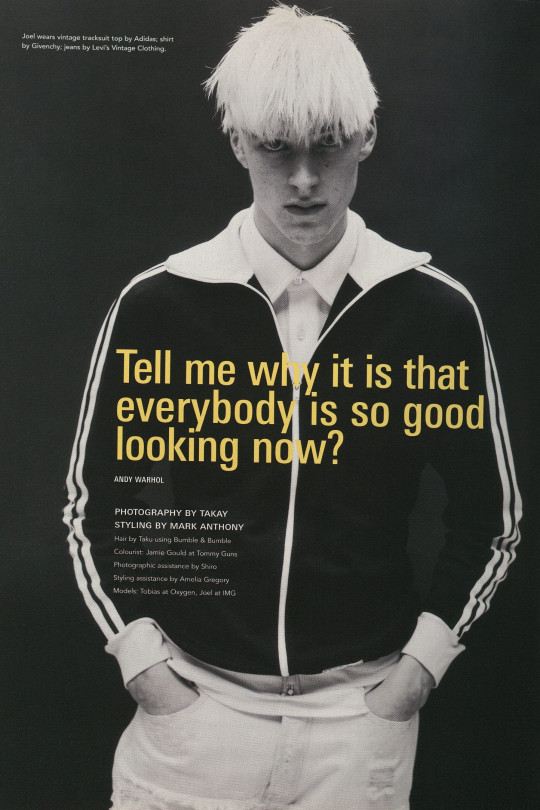
223 notes
·
View notes
Text
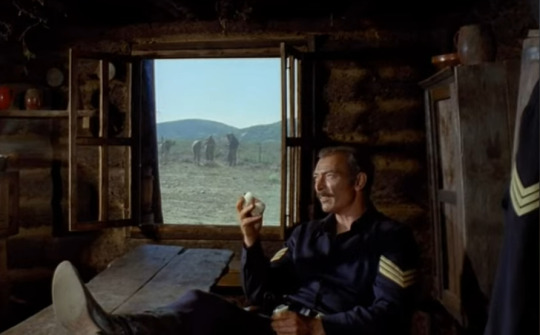


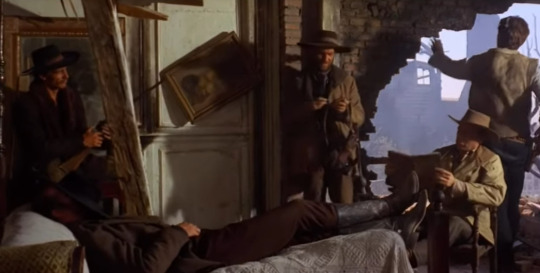
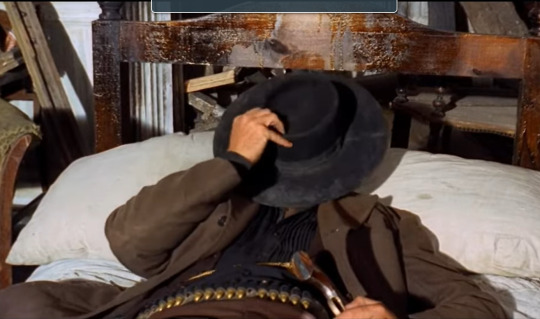
Angel Eyes doing his thing.
#what a guy#my favorite guy#angel eyes\sentenza#sentenza#angel eyes#the good the bad and the ugly#gbu#LVC
80 notes
·
View notes
Text

Oh. So Orion has a type then.
#knowledge is a curse existence is a prison#jk i’ve been laughing for the past 45 minutes#chloe gong#secret shanghai#foul lady fortune#flf#foul heart huntsman#fhh#these violent delights#tvd#last violent call#lvc#marshall seo#benedikt montagov#benedikt x marshall#benmars#marshall and orion
81 notes
·
View notes
Text
last violent call characters and pairs as ao3 tags i found in my bookmarks and files
alisa

juliette

roma

mila

yulun

benedikt

marshall

roma/juliette

benedikt/marshall

marshall & juliette

benedikt & roma

benedikt & juliette

everyone, just every single character

#secret shanghai#last violent call#lvc#juliette cai#roma montagov#marshall seo#benedikt montagov#alisa montagova#mila (lvc)#romajuliette#benmars#yu lun (lvc)#these violent delights#our violent ends#tvd#ove
185 notes
·
View notes
Text
chloe gong character love confessions >>>
#something about them have my heart racing#legs kicking and me sobbing frfr#chloe gong#these violent delights#tvd#our violent delights#ove#foul lady fortune#flf#last violent call#lvc#foul heart huntsman#fhh
37 notes
·
View notes
Text
Alisa: [burps loudly after eating three tubs of yogurt]
Roma, hurriedly rushing to switch on the lights to his bedroom: How the fuck did you get into my house it is 3 a.m.-
Roma: YOU'RE BLEEDING OUT???
Juliette, half asleep: What's going on
#secret shanghai#these violent delights#tvd#our violent ends#ove#last violent call#lvc#roma montagov#roma mai#alisa montagova#juliette cai#cai junli#juliette montagova#juliette mai
11 notes
·
View notes
Text
fhh spoilers ish?
my thoughts so far

iconic.

angsty oml i lovr them both sm
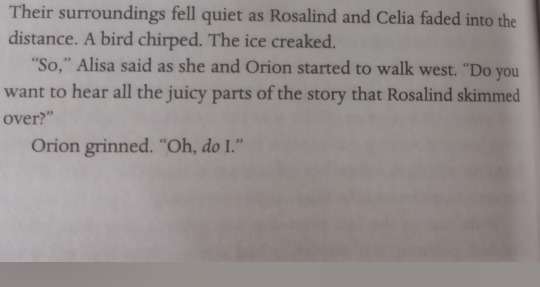
orion and alisa gossip club
#secret shanghai#these violent delights#our violent ends#foul lady fortune#foul heart huntsman#last violent call#tvd#ove#flf#fhh#lvc
15 notes
·
View notes
Text
I wish I had all of the Secret Shanghai characters exact heights for almost no reason. I just want it. It would make imagining things so much easier.
#foul lady fortune#foul heart huntsman#chloe gong#secret shanghai#these violent delights#our violent ends#tvd#ove#flf#fhh#lvc#I WISH#foul lady fortune reread
10 notes
·
View notes
Text
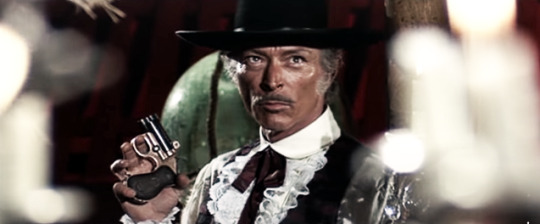

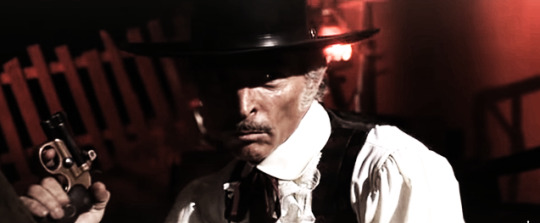
Return of Sabata (1971) - The psychedelic intro
#lee van cleef#return of sabata#sabata#my edit#spaghetti western#1970s movies#lvc#gianfranco parolini
31 notes
·
View notes
Text
The Oxford Real Farming Conference 2024 (ORFC24)
I have a sort of love-hate relationship with conferences. On the one hand, I always get swept away by the initial rush of excitement: a gathering of people, coming to exchange knowledge around a field we are all passionate about. On the other hand, for someone like me, the reality of conferences tends to be strange, isolating experiences dominated by academic, white, middle-class, cis people who speak a different language, with different values, and operate in a different world to me. Though I enter them full of excitement and curiosity, I usually leave feeling somewhat untethered, overwhelmed by theory and findings but bereft of community and thirsting for actionable, solutions-based approaches. I was delighted, therefore, when ORFC24 opened with a plenary of 10 speakers, all of them landworkers, from around the world, all of whom were extolling - in their own words and ways - action; solidarity; active hope; and calls for food, land, and sea sovereignty. It was clear from the outset this wasn’t going to be the ‘usual’ kind of conference (an abstract exploration of ideas and record of projects past) but a gathering of an international, multilingual, grassroots movement, rooted in an ethics of care and equality; working directly with the land on fairer systems of food and farming.
During the opening Plenary, Charlotte Dufour from Conscious Food Systems Alliance (CoFSA) invited us all - speakers, volunteers, and delegates, in Oxford and online - to take a moment to connect with the land, with one another, and to set an intention for the conference mindfully. In a busy programme of 45 sessions, featuring over 150 speakers and a busy stream of projects, opportunities, and conversations inundating social media, this invitation felt like a precious opportunity to gather focus, mitigate overwhelm, and ground ourselves. Sat at my kitchen table, some 330 miles away from Oxford, I set my intention: to seek out and learn from those at the frontlines of the struggle for Land, Food, and Environmental Justice. It didn’t take long for my intentions to be realised…
In the Thursday lunchtime session Colonised and Coloniser Transforming Relationships through Food and Land Stories Loa Niumeitolu, a displaced Indigenous Tongan, now living and working on Lisjan Ohlone Territory, California and Jessica Milgroom, a descendant of settler families, who grew up on Ojibwe reservation land in Northern Minnesota, held a conversation that aimed to “...break down hierarchies…to ask how we relate… how can we walk forwards together healing the wound of colonisation through food...” (JM). The conversation was one of honouring, compassion and bearing witness. As a white person living in the UK, for me it was also one of humility and unlearning: of coming to understand how our Western food systems are designed, founded and run on the violent displacement of indigenous people; the erasure of indigenous food systems; the severing of indigenous identity and everybody’s connections to the land. In some of her closing remarks Loa Niumeitolu invited the attendees to think differently about our identities and interconnectedness: “The sacred site IS the land… the land is an extension of our bodies… and we are all from indigenous people… we all have great great great grandparents who cared for, and stewarded, and loved the lands that we’re on…”. The session left me thinking about how it is people like myself can find our way back to our indigenous selves, to our ecological identities, and to the essential interbeing with the lands we live on. This conversation, conducted across the divide of coloniser and colonised, offered hope for how stories, conversations, and gatherings may start to unravel the systems of oppression and exploitation that industrial agriculture (aka the food arm of imperialist white supremacist capitalist patriarchy) extends around the world.
On the Friday morning session Building a Global Peasants Movement: 10 Years of Land Workers’ Alliance (LWA) and 30 Years of La Via Campesina (LVC) we heard from Jyoti Fernandes, Morgan Ody, Chukki Nanjundaswamy, and Paula Gioia themselves all land workers, farmers, peasants and indigenous peoples from around the world working both at the grassroots and international levels to oppose the neoliberal programme of WTO whilst also building international food sovereignty and land justice movements. It was a moving and eye-opening session led by women who - though it was never named - are all doing the vital repair work of rematriation.
Chukki Nanjundaswamy (Executive Chairperson of the Karnataka State Farmers Movement and co-coordinator of the All India Coordination Committee of Farmers Movements) traced the history of La Via Campesina (aka “Our Way” in Spanish) from its origins to the movement today which branches almost 100 countries and hundreds of local and national organizations “...fighting all kinds of imperialist and capitalist forces… for the right to food sovereignty”. She described how LVC is organised from the bottom up, constantly learning and evolving from the experiences of its members and other allies including the decision to ensure men and women were represented equally and at all levels of the movement. “LVC is not just about denouncing what we don’t want but also about building hope…across all sectors of society”.
Jyoti Fernandes (Campaigns and Policy Coordinator for the Landworkers’ Alliance) described “the family” of LWA, itself a member of LVC, and her reasons for co-founding LWA in the context of the UK where inequality and access to land have been yolked since the time of the enclosures. She explored the organic origins of the movement from pro-nature, anti-GM protests; to creative expressions of hope, solidarity and resistance; a shared belief in rights for natural home building, self and community sufficiency, and a collective realisation that “...there was this huge network of unorganised people… the neo peasantry returning to the land… and smallholder farmers… all facing evictions … and struggling to survive in the face of the neo-liberal paradigm the UK government was pushing onto farming…”. She described, with infectious joy, how LWA now regularly consult with DEFRA who recognise that LWA’s impetus of “Matching food production with biodiversity and looking after the climate…” is in everybody’s interests.
Paula Gioia (Facilitator of the Smallholder Farmers Constituency in the Civil Society and Indigenous Peoples Mechanism - CSIPM) talked about the intersectional work members of LVC had to undertake to develop a movement of radical change “… to fight against Capitalism and to fight against Patriarchy…this begins with self-reflection: how we reproduce Patriarchy in our daily lives… and this self-reflection begins with space… ” They described the women’s strike at of 1996 in Tlaxcala, Mexico during the 2nd International Conference of LVC in, which challenged the dominance of men, patriarchal ideas and attitudes in the movement whilst demanding; acknowledgement of the role women play in agriculture, farming, and society; 50 - 50 representation of men and women at all levels of LVC; a campaign highlighting and fighting violence against women and; the creation of spaces - now women’s assemblies - necessary for women’s ideas and voices to be supported by, and come forth through the movement.
Morgan Ody (General Coordinator of La Via Campesina, member of Confédération Paysanne and of the coordinating committee of ECVC) wearing the Palestinian keffiyeh around her shoulders spoke with clarity and passion about LVC's global accomplishments:
“… it is still illegal to crop GM crops in Europe, we fought for that… In Columbia, LVC is one of the main guarantors of the Peace Agreement… We have been the first to call for food sovereignty and now everybody is calling for food sovereignty…We have been pioneers of peasant feminism and now peasant feminism is growing everywhere… We have been able to negotiate the UN Declaration on the Rights of Peasants and other people working in rural areas (UNDROP)...” But Morgan’s talk didn’t end in the past, she spoke about how, in the face of multiple overlapping global crises, LVC offers alternative ways of being, of hope, of solidarity now and going forward “...Peasants…and all who are taking care of Mother Earth are the future...”.
She expressed grief and horror at the genocide happening in Palestine and the complicity of governments: “This is not acceptable and as La Via Campesina, we stand against this barbary, we stand for human values, we stand for human dignities, of whoever, of women, of non-binary people, of people whatever their religion or the colour of their skin. We are equal and we are equal in dignity...” This was a powerful reminder that land and environmental justice are inextricably intertwined with social justice and that we are all responsible for decolonising ourselves, for calling out and resisting imperial violence and oppression, wherever it happens in the world. But this session also spoke to how we are all responsible, not just for fighting the old, but also for cultivating the new: through solidarity, active hope, compassion, and creativity. As Morgan said in her closing comments “We are all responsible...for building a culture based on human rights and equality, intentionality, solidarity, and cooperation.”
The session was bookended with calls of “Viva La Via Campesina! Viva!”
In reflecting on these sessions of ORFC24, I started to think that healing is not the same as forgetting, but equally, it is not about flagellating ourselves or one another with past and current traumas - healing comes when we slow down, take time to sit with the pain and discomfort, to listen, learn, notice, and accept. This applies to ourselves, to those we have harmed, and to everyone (humans, land and more than humans alike). What both these sessions taught me is that when we share space and stories, when we listen deeply to one another and bear witness with compassion and empathy, we slowly start to arrive at a new understanding and to do the slow, gentle work of cultivating regenerative cultures based on reciprocity, healing and solidarity.
What I didn’t expect to happen as a consequence of volunteering at ORFC24 was that I would go away from the conference knowing more about myself…As someone who grew up in the English countryside but with no rights to access (we were a poor/working-class family living on a former miner’s terrace, surrounded by Grouse Moors and a large, tenanted estate) my relationship with the land was schismatic: though I felt a deep connection with the fells, moors, and rivers, I was also - according to the farmers, landowners and agents - an outsider. Worse, I was an illegal trespasser. I was surrounded by land which felt like home, like an extension of myself, only greater, deeper, older, more complex, more loving than I could comprehend. And yet, if caught swimming in the tarn, making dens on the fells, walking on the moors, or trudging through the heather, I would - at the very least - be shouted at and oftentimes, be warned away by the crack of shotgun fire. What ORFC24 and the incredible speakers made me realise is something that has taken me 30 years of unlearning to only start to understand: the necessary return to the land, the rediscovery of land-based life, something that I always yearned for but could never allow myself to imagine is not just a fantasy, it is a right. Listening to speakers on colonized lands, to those displaced by colonization and capitalism, to the LWA and LVC, I started to understand the violent inequality at the heart of our UK land and food systems. These speakers helped me see that I have the right to be on and with the land. Because there is no separation between us. I have always known, since I was a child, that myself and the land are one and the same, it was just educated out of me by our systems of inequality, land ownership and education. What the speakers at ORFC have helped me see is that my healing, and the healing of the land, are not separate but wholly, inextricably intertwined.
So now, to begin again, with gratitude and humility… The work of reconnecting and healing all our wounds…
Viva La Via Campesina!
Viva!
Iris Aspinall Priest, Tyne Valley
10.01.23
Word Count: 1985
#equality#solidarity#food sovereignty#LVC#LWA#land rights#indigenous rights#healing#animism#Qi#Nature#Resistance#Dignity#Human rights#traumarecovery#trauma#colonialism#capitalism#right to roam#irispriest
2 notes
·
View notes
Text
Hear me out an Orpheus/Eurydice Romajuliette AU called “The Lover and the Lyre”
#Idk it’s midnight#I promise I’m going to sleep now#secret shanghai#romajuliette#roma montagov#juliette cai#Juliette montagova#Juliette mai#Roma mai#tvd#these violent delights#ove#out violent ends#lvc#last violent call#orpheus and eurydice#chloe gong
44 notes
·
View notes
Text

16 notes
·
View notes
Text

#yes angel eyes again ehdnhnxehnde#the good the bad and the ugly#the dollars trilogy#angel eyes#angel eyes\sentenza#sentenza#gbu#westerns#spaghetti westerns#LVC#the gbu beach episode /idk
23 notes
·
View notes
Text
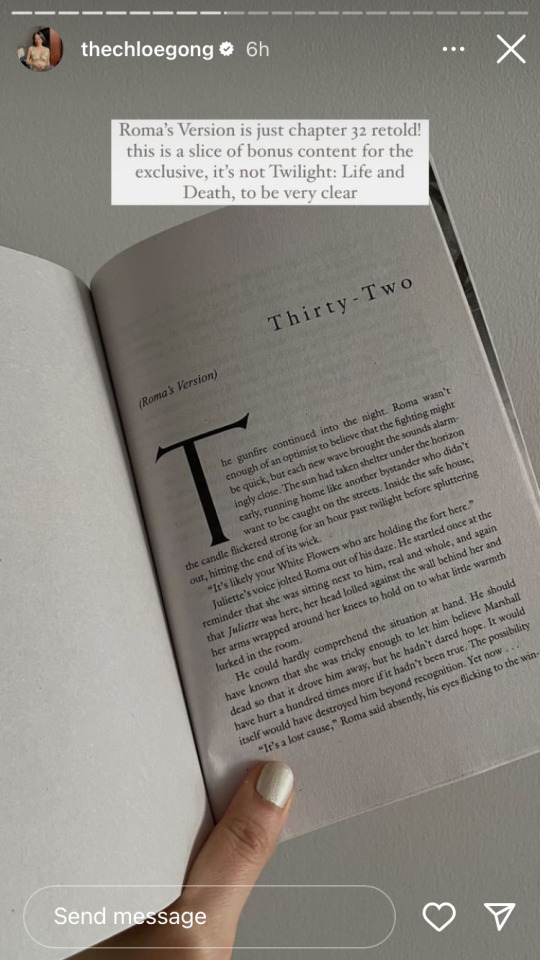
No but the idea of the ss books twilight life and death style would be so funny oh my god
#chloe gong#secret shanghai#these violent delights#tvd#our violent ends#ove#roma montagov#juliette cai#juliette x roma#romajuliette#mai#foul lady fortune#flf#foul heart huntsman#fhh#last violent call#lvc
46 notes
·
View notes
Text
contemplating making secret shanghai incorrect quotes with quotes from my friends & i's quote book.... hmm.... i will contemplate further
#if you never hear about this again i dismissed it but if i end up doing it ill probably post some next week once im on break/exam leave#tvd#ove#flf#fhh#lvc#secret shanghai#these violent delights#our violent ends#foul lady fortune#last violent call#foul heart huntsman#chloe gong
15 notes
·
View notes